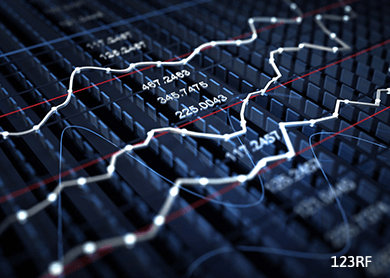
(Bloomberg) -- Saudi Arabia is opening one of the world’s most-restricted stock markets to foreigners for the first time on Monday.
The move comes as the biggest economy in the Middle East seeks to reduce its reliance on oil income, which accounts for about 90 percent of government revenue, and as the kingdom burns through foreign reserves at a record pace.
What’s the big deal?
Saudi Arabia is the wealthiest and most powerful Arab nation, with more proven oil reserves than both the U.S. and Russia. Its stock market is bigger than all the bourses in the six-nation Gulf Cooperation Council combined.
Until this week, the only way for foreign investors to buy Saudi stocks was through so-called participatory notes and exchange-traded funds.
So can all foreigners invest directly?
It depends on how much money they manage and how long they’ve been in the business.
The Riyadh-based Capital Market Authority has restricted direct trading to institutional investors with a minimum of about $5 billion in assets under management and at least five years of experience.
Foreigners -- both resident and non-resident -- will be able to own as much as 49 percent of a single stock. Holdings in a single equity for one qualified foreign investor are capped at 5 percent, and there’s a 20 percent ceiling for all QFIs in any one stock. All in all, QFI holdings won’t exceed 10 percent of the whole market.
If Saudi Arabia is so keen to attract cash, why the limits?
The Saudis want to filter out hot money. They intend to reduce market volatility, which was among the world’s highest earlier this year, by attracting institutional investors that have long-term aspirations.
By allowing QFIs and approved QFI clients to vote in general assembly meetings and nominate representatives to boards of directors, the CMA expects corporate governance at Saudi companies to improve.
Can foreigners buy any stock?
There are five companies that are completely off-limits, four of which have real estate assets in Mecca or Medina. Non- Muslims are barred from entering those cities and could face punishment if they violate the ban.
The companies are Makkah Construction & Development Co., Jabal Omar Development Co., Medina-based Taiba Holding Co., Knowledge Economic City Co. and The National Shipping Co. of Saudi Arabia.
It’s unknown why the shipping company has been excluded, though its possible that the business may be on the nation’s so- called negative list -- a lineup of industries foreigners can’t invest in.
Why is the market opening now?
The kingdom has been spending at a record pace. It’s fighting a war in Yemen and Syria, and is pursuing a stimulus plan to avoid political unrest at home.
Growth in the nation’s $752 billion economy may slow to 2.5 percent in 2015 from 3.6 percent last year, according to economist estimates compiled by Bloomberg. Citibank Inc. says the kingdom could become a net oil importer by 2030.
Who cares?
MSCI Inc., for one. The global index provider, which serves 98 of the world’s 100 largest money managers, said this month it will seek feedback on the market’s accessibility before considering it for potential inclusion in the MSCI Emerging Markets Index.
What are the key statistics?
The 170-member Tadawul All Share Index rose 1.3 percent on Sunday, its biggest increase in two months. The gauge has advanced 16 percent this year, the most in the Middle East, and is trading at about 17 times estimated earnings, compared with about 13 times for the MSCI Emerging Market Index.
Trading is open from Sunday to Thursday from 11 a.m. in Riyadh to 3:30 p.m. -- Bloomberg